Let’s give visibility to the Spitzenkandidaten!
For the first time in the 2014 European elections, lead candidates for European Commission President (known as Spitzenkandidaten) were nominated by the European political parties. It was a democratic improvement: the European citizens not only directly voted for their MEPs (i.e. their representatives at the European Parliament) but also indirectly voted for the Commission president as, as stated by article 17(7) TEU, the European Council has to “take into account” the results of the European elections when proposing to the European Parliament a candidate for Commission President, then elected by the Parliament. This is why Jean-Claude Juncker is the current Commission President: the EPP, the political party whose Spitzenkandidat he was, finished first in the European elections.
Improving the democratic process while providing European citizens with political figures affiliated to identified European political parties, representing specific ideas, programmes and visions for Europe’s future. Giving more democratic accountability to the European Commission, and bringing it closer to the citizens. Europeanising the European elections in a democratic spirit, to “help create a common European political space, in which voters make an informed choice about the different political options that stand for election to the European Parliament”. [1]
Unfortunately, the introduction of the Spitzenkandidaten process did not reach its objective of increasing the voters’ turnout.
One could hardly get the EU closer to its citizens if its representatives are not given any visibility. This is what happened in 2014: less than half of European citizens knew about the existence and / or the names of the Spitzenkandidaten and their affiliation to European political parties, and some countries displayed an extremely low level of public awareness in this regard. [2] The same goes for the affiliation of these European political parties to national political parties. The national political parties are better known and identified by the citizens: if they had made the effort to explain their belonging to a European political family during the 2014 electoral campaign, if they had made the effort to give a European dimension to their campaigning and to talk about European issues, the citizens’ interest and understanding could have increased, and so the turnout. And the national political parties are not the only ones to blame in this regard: the lack of media coverage of the elections or the “nationalisation” of this coverage should also be pointed out.
Of course, all political parties or media in the different EU countries did not necessarily behave in this way, but this general trend could unfortunately be observed in a lot of them (as observed by scholars such as Sara B. Hobolt, Sebastian Adrian Popa or Hermann Schmitt).
“While the candidates were officially nominated by Europarties, it is still national parties that dominate the election campaigns. The lead candidates’ impact on national campaigns was therefore largely determined by the extent to which national party leaders and the national media involved the European candidates in their national campaign, and they may have strong incentives to fight on domestic issues (e.g. opposition parties in opposition to the national government) and even to deliberately dissociate themselves from the Spitzenkandidaten (as happened in the UK, and to a lesser degree in Italy).” [3]
And one of the most edifying examples is the French one.
The edifying French example of a campaign not to repeat
After the 2014 European elections in France, the French and Italian scholars Olivier Rozenberg and Andrea Spitaleri co-wrote a paper exploring the flaws of the electoral campaign, pointing out the responsibilities of national actors in the lack of European dimension of the European elections, contributing to the lack of understanding of both the elections and of the EU’s functioning by the citizens. Let’s recall that the electoral campaign was launched by the Ministry of the Interior only two weeks before the election, which is a much too short period to correctly cover the issues of the elections, to present the programmes, the candidates and the political parties to the voters, and to conduct enough debates.
Let’s start with the national political parties. Some of them tried to conduct a European electoral campaign, in the sense that they brought forward European matters: the openly pro-European Green party (Europe Ecologie - Les Verts) and the two centrist parties (UDI - MoDem). But their size, influence and visibility were small compared to the big parties, and their political message was probably too vague, too general and not “catchy” enough.
But what was more bothering was the attitude of the right-wing opposition party (the UMP party) who used the electoral campaign as an occasion to settle accounts with the socialist party (PS), in power at the time. The UMP chose as a slogan for its campaign “Say no to François Hollande”. The electoral campaign of the UMP for the European elections, that one could expect to raise European issues, as the elected representatives will establish rules on European matters within European institutions, shaping EU politics and policies for the next five years, was thus used to squabble with another national party. This attitude can only damage the quality of the debates and the European dimension of the campaign.
We can add to this attitude a lack of willingness from both the PS and the UMP to address European issues during the campaign, or to raise them in a rather negative way towards the European Union (e.g. austerity measures, “imposed immigration”, criticisms towards EU enlargement...). If the EU is of course not free from criticisms, but they should be developed in argued debates and by actors proposing concrete solutions and reforms for the future of Europe.
By the way, one political party enjoyed wholeheartedly slagging the EU off: the Front National (FN), which took centre stage during the campaign with a strong Europhobic political message, presenting (as always) the European Union as a non-democratic entity composed of unelected bureaucrats, threatening national independence, and bringing dangerous migratory flows. “No to Brussels, Yes to France”, “The European Union destroys, the nation protects!”, “Let’s revive France, getting it off its jailers, greedy bankers, unelected commissioners”, feature among the FN’s quotes and slogans during the campaign.
In this context, the French national media was not helpful for the European project either. Pro-European and federalist movements often complain that Europe does not have enough space in media coverage. Well, in 2014, France Télévisions, the French public audiovisual group purely and solely refused to broadcast on television the debate of 15 May 2014 between the Spitzenkandidaten (whereas this debate could have been conducted in French). This led to the publication of a column protesting against this decision, titled “France Télévisions should not censor the European debate”. This column was signed by French personalities such as MEPs, candidates to the European elections, or members of thinks tanks and of pro-European organisations, including the presidents of the Young European Federalists (JEF Europe) and of JEF France at the time. An online petition called “More Europe on TV means less populism in the ballot boxes” also gathered 12,408 signatures.
On 2 May 2014, ahead of the debate between the Spitzenkandidaten in 2014, Jon Worth, former president of JEF Europe, wrote for The New Federalist:
“Now then it is the turn of the media. If there are candidates for top positions, then the people that are actually going to vote in the European Parliament elections actually need to know what is going on. In most EU countries there is the tradition in national elections of hosting TV debates with the leading candidates for the parties, and the same will happen in the Spitzenkandidat process.”
What’s next?
Solutions have been proposed. In September 2015, the European Parliament released a Report on the Reform of the Electoral Law of the EU, proposing a series of measures to remedy these issues. One of the most interesting and relevant one, in my view, is the enhancement of the Spitzenkandidaten process and of the European political parties through, for example, an obligation for the national political parties to mention their affiliation to a European party, including on the ballot paper, respecting a principle of “equal visibility”. Until now, unfortunately, the European Council has appeared as a blocking institution against such reforms to be implemented. Pro-European movements, citizens and personalities should thus raise these questions in front of their national political parties and representatives, to engage them in taking responsibility for the future of Europe. Organisations such as the Young European Federalists will have to redouble their efforts to raise European matters in the public debate ahead of 2019 European elections, which will be of the utmost importance to shape the future of European integration. We have one year to go.
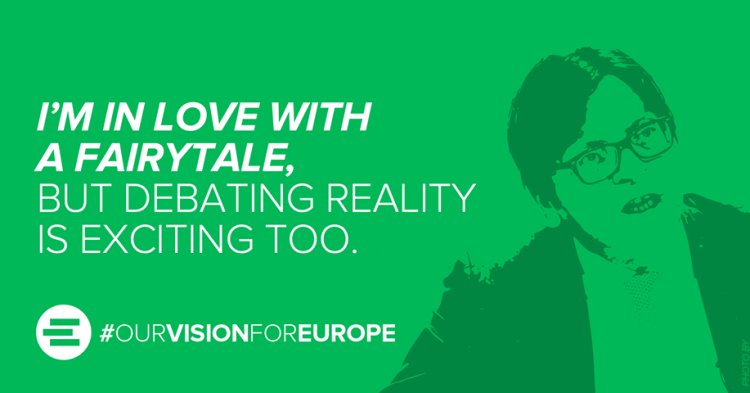

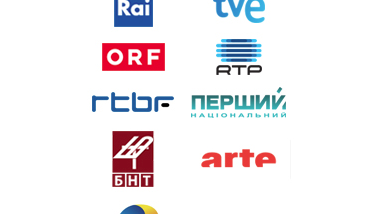
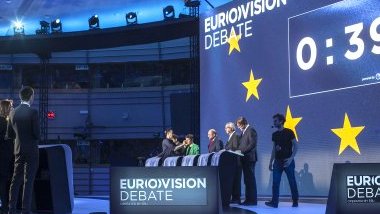
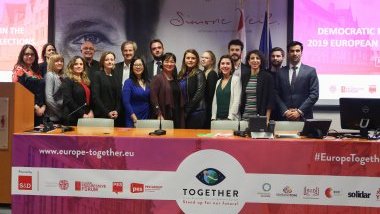
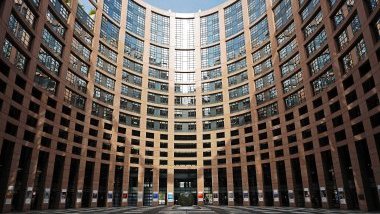
Follow the comments: |
|
